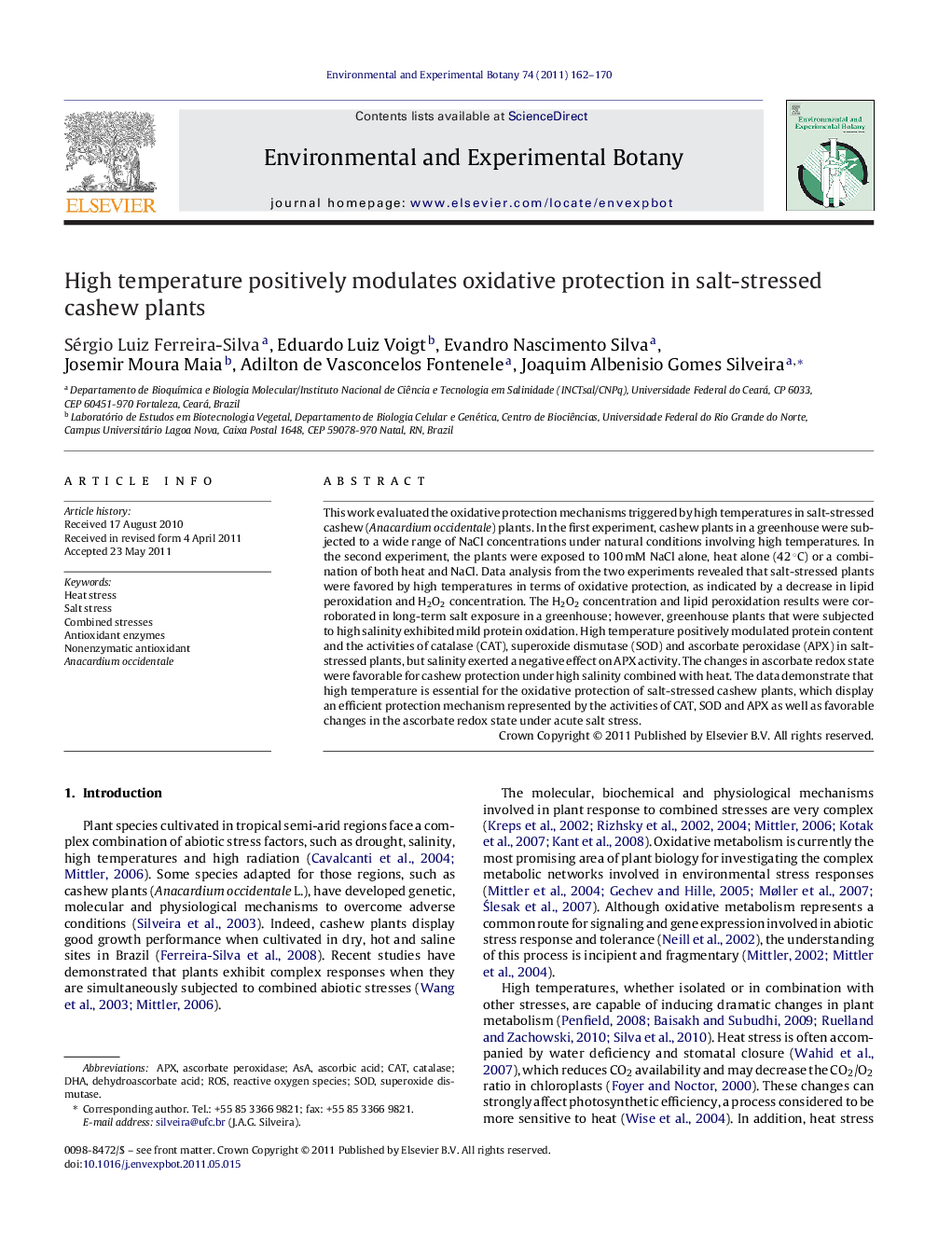| کد مقاله | کد نشریه | سال انتشار | مقاله انگلیسی | نسخه تمام متن |
|---|---|---|---|---|
| 4554808 | 1628103 | 2011 | 9 صفحه PDF | دانلود رایگان |

This work evaluated the oxidative protection mechanisms triggered by high temperatures in salt-stressed cashew (Anacardium occidentale) plants. In the first experiment, cashew plants in a greenhouse were subjected to a wide range of NaCl concentrations under natural conditions involving high temperatures. In the second experiment, the plants were exposed to 100 mM NaCl alone, heat alone (42 °C) or a combination of both heat and NaCl. Data analysis from the two experiments revealed that salt-stressed plants were favored by high temperatures in terms of oxidative protection, as indicated by a decrease in lipid peroxidation and H2O2 concentration. The H2O2 concentration and lipid peroxidation results were corroborated in long-term salt exposure in a greenhouse; however, greenhouse plants that were subjected to high salinity exhibited mild protein oxidation. High temperature positively modulated protein content and the activities of catalase (CAT), superoxide dismutase (SOD) and ascorbate peroxidase (APX) in salt-stressed plants, but salinity exerted a negative effect on APX activity. The changes in ascorbate redox state were favorable for cashew protection under high salinity combined with heat. The data demonstrate that high temperature is essential for the oxidative protection of salt-stressed cashew plants, which display an efficient protection mechanism represented by the activities of CAT, SOD and APX as well as favorable changes in the ascorbate redox state under acute salt stress.
► The antioxidant protection in cashew leaves under salinity is heat dependent.
► High temperature avoid accumulation of H2O2 and TBARS in cashew under salinity.
► Heat up-regulates the SOD, CAT, and APX activities in cashew leaves under salinity.
► The heat and salt combination favors the ascorbate redox system in cashew plants.
Journal: Environmental and Experimental Botany - Volume 74, December 2011, Pages 162–170